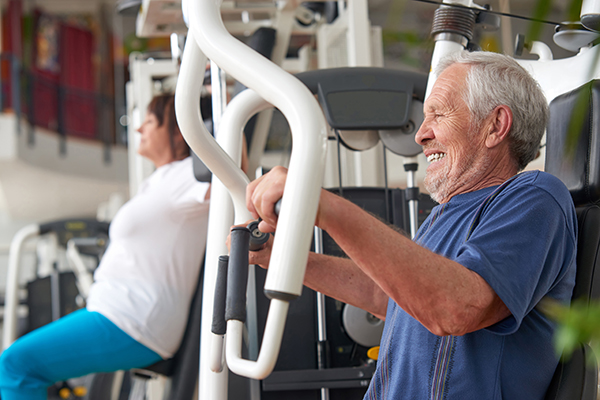
For the purposes of their research, the team recruited 314 participants with an average age of 73 from the Vanderbilt Memory & Aging Project, an ongoing and longitudinal study that focuses on brain aging and heart health. Roughly 39 percent or a third of the participants had mild cognitive impairments, while the rest had normal cognitive function. Each of the participants underwent echocardiagrams and magnetic resonance imaging (MRI) to measure the strength of their hearts or cardiac index and the blood flow in their brains, respectively.
The researchers discovered that a low cardiac index corresponded with decreased blood flow to the brain. According to MedicalNewsToday.com, blood flow to the left temporal lobe was lower by an average of 2.4 milliliters (ml) of blood per 100 grams (g) of tissue per minute for every unit decrease in cardiac index. The team noted that, on average, this reduction in blood flow is typically expected with 15 years of aging. By contrast, the flow of blood to the right temporal lobe was reduced by an average of 2.5 ml per 100 g of tissue per minute, amounting to over 20 years of aging.
Furthermore, the team came to these results after making the necessary adjustments for numerous factors that could affect blood flow. These included the participants' age, mild cognitive impairment diagnosis, and whether or not they had the apolipoprotein E (APOE) e4 gene, a protein linked to the increased risk of late-onset Alzheimer's disease.
“The primary finding was that lower cardiac index related to lower cerebral blood flow in the temporal lobes, the brain's memory center and the area where Alzheimer's disease first develops in the brain,” said Dr. Angela Jefferson, lead author of the study and director of the Vanderbilt Memory & Alzheimer's Center. “The magnitude of these associations corresponded to 15 to 20 years of advanced aging."
Jefferson added: “It is increasingly well-recognized that there is an important connection between heart health and brain health. Managing blood pressure and diabetes, maintaining a healthy weight, and regular physical activity are a few of the things older adults can do to maintain good heart health, which may have very important implications for preserving good brain health.” (Related: Optimal cholesterol ratios not only good for the heart, but also lower Alzheimer's disease risk.)
Of course, exercise remains one of the best ways to keep your heart, and subsequently your brain, in optimal shape. Firstly, physical activity strengthens your heart muscle and boosts its ability to pump blood to the various parts of your body. Secondly, exercise promotes smoother and better blood flow by preventing the formation of arterial clogging. These are in addition to keeping your weight down and improving your sleep, all of which can help improve the health of your heart and cut down your chances of developing Alzheimer's disease.
But not all exercise is equal: some exercises are better for your heart than others, and these exercises fall squarely into that category:
- Walking: Safe, inexpensive, and simple, walking is a heart-healthy exercise that almost anyone can do. Although brisk walking is the best kind of walking, you don't need to jump right into this if you're not used to it. Start with leisurely strolls then work your way up to brisk walking.
- Running: Although more challenging than walking, running is better for your heart. Like with brisk walking, don't go straight into running if you've never done it before, just build up to it until you're able to run for far longer.
- Swimming: Another simple exercise yet one that can immensely benefit your heart. Plus, it's perfect for those with joint problems who can't run or walk.
- Cycling: Whether you ride your bike along trails or use the stationary bike at the gym, cycling is an enjoyable and low-impact exercise that will do your heart lots of good.
- Interval training: This involves varying the speed and intensity of your workouts in a short burst of time. You can integrate this into the previously mentioned exercises to take their efficacy to the next level. For example, you can walk at your fastest for a minute and then go at a relaxed pace the next minute. Repeat this for as long as you can.
Combine these exercises with a healthy diet and you've got yourself a surefire plan to minimize your risk of Alzheimer's disease. If you'd like to view more stories on how you can keep this disease at bay, then feel free to visit Alzheimers.news today.
Sources include:
Please contact us for more information.























